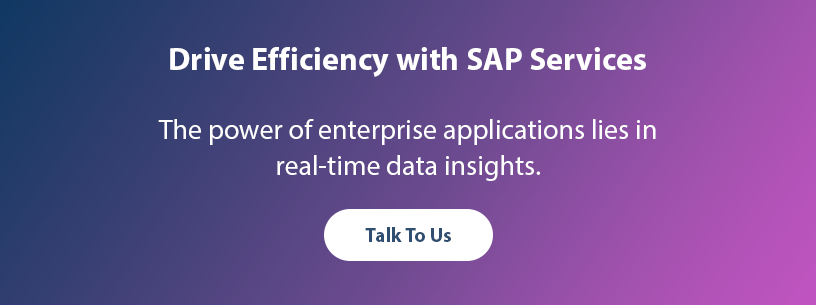The usual yet biggest challenge in the insurance industry has consistently been finding a method to integrate customer information.
If the customer information system is built in a cohesive environment, the insurers can provide seamless customer services to the policyholders across every touchpoint. However, many insurers are still lagging to keep up with customer service standards due to the siloed legacy system.
This article will mention the familiar challenges faced by the Insurance industry, mainly by, prospects, policyholders, and producers’ management. We will also discuss relevant and achievable solutions leveraging Microsoft Dynamics 365 for insurance.
Before that, let us dive deep into what Microsoft Dynamic365 does.
What is Microsoft dynamic365?
Microsoft Dynamics365 is Customer Relationship Management (CRM) software. It enables its users to integrate data and leverage data-driven solutions that improve the quality of customer service and engagement.
Specifically, you can use these CRM systems and applications to enhance customer interactions and relationships by tracking engagements and sales – all in one place.
Are Microsoft dynamics and dynamics 365 the same?
Dynamics 365 emerged as a byproduct of Office 365 and productivity tools. In 2016, Microsoft rebranded Dynamics CRM software as a customer engagement enhancer and named it Dynamics 365.
Further, we will learn the common challenges insurers face without Microsoft Dynamics 365 CRM for insurance.
Common challenges for prospects, policyholders & producer management
1. Siloed technology solutions: Many insurers have siloed technology solutions to manage these three groups. The prospect management system stores the prospect’s information, and the data is leveraged only by marketing and distribution from separate systems.
Hence, such a process makes customer service less efficient and agitates the customer with multiple touchpoints.
2. The predominance of depreciated CRM systems: Legacy CRM systems store the policyholder information. The other vital details, such as core policy, billing, and claim, are retrieved from other systems.
Policyholders now have more complex needs and are more aware of their choices. As a result, they want a touch of personalized experience. Hence, insurers must digitize services to find customer behavioral patterns to leverage data analytics and technology.
3. Lacks omnichannel & storage management: The business’s entire distribution management lifecycle has its databases and systems to manage its relationships and interactions with producers and agents. However, there is a distinct trend to consolidate relationship information about all three of these parties into the standard CRM system.
Omnichannel distribution is required to improve customer interaction quality. It can also help insurers increase customer satisfaction and loyalty. As a result, customers gain enhanced experiences, tailored information, and faster claims resolution.
5. On-premises storage setups: On-premises monolithic calls for unnecessary physical space. With digitization, the system can be shifted to SaaS platforms and could help boost operational productivity. Hence, this will help the insurers to serve the policyholders in the best way.
6. Information security & trust in technology: The biggest challenge with insurers is to adopt technology and convince the prospects that the stored data is safe and efficiently retrievable on demand. However, it can revolutionize the whole insurance industry and help keep up with the advancements once achieved.
Benefits of customized dynamic365 solution
Dynamic 365 CRM for insurance helps revolutionize your whole operational and management activities. A few of the methods are mentioned below:
- Transforming legacy CRM systems: Many industries have adopted modern rules and tools over the past five years to reduce the total cost of operational management. As one insurance market development trend, insurers embrace new CRM systems such as Dynamic 365 for insurance to reduce costs.
Insurers must outsource for optimum solutions and adopt RPA (Robotic Process Automation) and SaaS. RPA refers to robotic process automation and SaaS refers to software as a solution. Adopting such technology will help both the insurers to boost profitability and better pricing, and the customers will have an enhanced experience, better channel access, and quicker resolution.
- Omnichannel distribution & integrated CRM: Insurers are chasing to be more customer-oriented than price-oriented. To be customer-oriented, insurers must adopt digitization and optimize all interactions across channels to be more customer-oriented. Microsoft Dynamics CRM helps insurers achieve growth by finding relevant prospects and maintaining retention.
- In addition, integrated Dynamics 365 CRM helps strengthen the segment-wise customer relationship, resulting in repeated profits and boosting sales.
- Cybersecurity in the insurance industry: With significant investment in the digitization of the CRM sector, there lies a more significant cyber threat. Now, you may ask if you should invest in digitizing or not.
The risk is what keeps the market going and not taking the risk of digitizing is also a risk, fatal to your insurance business. Insurers cannot underestimate the risk and must take necessary precautions. This is the other side of the digital world; it offers excellent potential for exploitation by criminals and others wanting to cause trouble.
However, Dynamics 365 CRM provides a robust security framework to keep from cyber-attacks. You must understand that customer data is confidential and must be treated with extreme caution when shared across your various channels or applications.
- Blockchain in InsurTech: With more significant threats, prominent market players are ready to take the digital plunge backed by disrupting technologies such as blockchain.
blockchain technology in dynamic 365 CRM gives the liberty to take higher risks. Fintech solutions are seeing a positive trend in adoption by both insurers and policyholders.
- Big data and analytics: Insurers must invest in CRM platforms offering data analytics and better data management to improve any and every aspect.
With Dynamics 365 CRM, you can collect and manage new data to generate more significant insights and have a competitive advantage over other insurers. In addition, data-driven insurers are leading the cultural and organizational changes across the insurance industry. Hence, software like Dynamics 365 CRM for insurance can help you sustain and grow as well.
Conclusion
Dynamics 365 CRM for the insurance industry addresses all the challenges mentioned above and provides apt solutions. In addition, the agility of Dynamic 365 is such that the solution provided is flexible to fit all levels, all types, and all styles of insurers.
Regardless of the team size, agents can quickly adapt Dynamics 365 to their workflow. As insurers, you must try to enhance your platforms for ease in operation and accessibility. And Microsoft Dynamics 365 is undoubtedly the solution that insurers accomplish. Cygnet Infotech uses agile methodology to implement Microsoft Dynamics 365 and other CRM suites. This helps in focusing on continuous prioritization and delivering intrinsic business value.
Let Cygnet Digital be your technology partner in growth and innovation. Reach out to us today!











